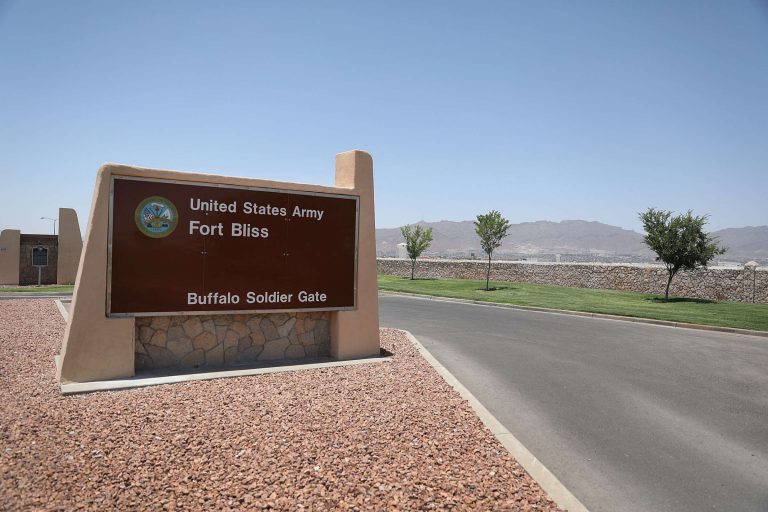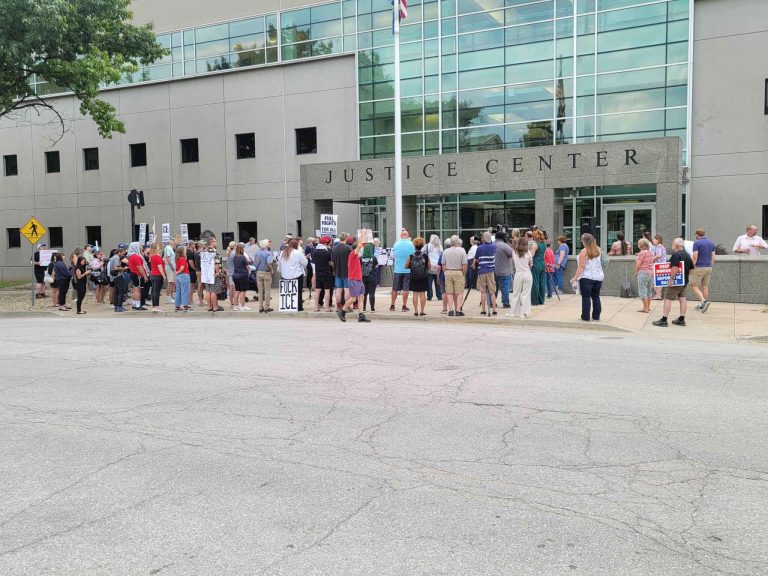Trump Administration Opens New Immigration Jail At Texas Military Base
Despite local opposition, the Trump administration has opened what’s expected to be the largest immigration jail in the country, on the grounds of the Fort Bliss military base in El Paso, Texas. In addition to Fort Bliss, the Trump administration also plans to detain immigrants on military bases in New Jersey and Indiana.
On August 18, Rep. Veronica Escobar (D-Texas), whose district includes most of El Paso and part of Fort Bliss, was the first federal lawmaker to conduct an oversight tour of the jail, which is expected to eventually hold about 5,000 people.
At a press conference held outside the jail, Escobar told reporters that she did not speak with any of the approximately 1,000 people detained at the “massive tent city.”















